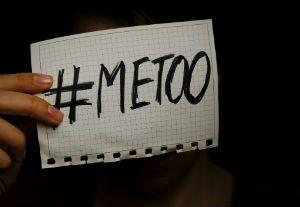
Prohibition of Non-Disclosure Agreements and Mandatory Arbitration:
Pursuant to the New York State law, as of July 11, 2018, employers may not include in any settlement agreement or resolution of any claims relating to gender-based harassment, any terms or conditions that would prevent the disclosure of the underlying facts and circumstances to the claim or action, unless the victim specifically requests confidentiality. Moreover, if the individual agrees to such a confidentiality provision, they must be provided a copy of the proposed non-disclosure agreement and have 21 days to decide whether to agree to it. Should the individual agree and sign the non-disclosure agreement, they must also be given 7 days after signing the agreement to revoke it.
Further, the NYS law also prohibits mandatory arbitration clauses from being included in any agreement to resolve allegations of sexual harassment. This prohibition is only applicable to contracts entered into on or after July 11, 2018, 90 days after the Bill was enacted into law. However, this aspect of the NYS law does not apply to arbitration clauses included in any collective bargaining agreements.
Employment Policies, Posters and Information Sheets, and Training:
Both the State and City laws require employers to provide additional information to employees about sexual harassment. Employers will be required to adopt policies which must include: examples of prohibited conduct; information about the federal and state statutory remedies for victims of sexual harassment; a standard complaint form; information regarding the administrative agencies and judicial forums where complaints may be made; a statement that sexual harassment is a form of misconduct for which sanctions can be imposed against individuals engaging in sexual harassment and supervisors who knowingly allow the behavior to continue; and a provision stating retaliation against individuals who complain or those who testify or assist anyone in making a complaint is unlawful.
By September 6, 2018, employers in NYC must comply with new poster and information sheet distribution requirements. By October 9, 2018, the remainder of New York must adopt sexual harassment prevention policies that comply with the NYS law. Additionally, under the NYS law, employers, regardless of how many employees they have, must have annual sexual harassment training in place by October 9, 2018. Under the NYC law, employers with 15 or more employees, must have sexual harassment training in place by April 1, 2019.
Additional Expansions:
Immediately effective under the NYS law, employers may be held liable for sexual harassment of non-employees, such as contractors, vendors, or consultants. Whereas only employees were previously allowed to file claims of sexual harassment, an employer may now be liable if they knew, or should have known, that non-employees were subjected to sexual harassment within the employer’s workplace and the employer failed to take corrective measures.
Likewise, the NYC law includes further expansion of the scope of protection for employees. Previously, an employee who was subjected to sexual harassment would only be able to pursue a claim against an employer with the New York City Commission on Human Rights (“NYCCHR”) or in court if the employer had 4 or more employees. The amendment now allows individuals to pursue claims regardless of their employer’s size.
The NYC law has also extended the statute of limitations period for individuals to file a claim with the NYCCHR. The statute of limitations has been expanded from one year to three years.
Impact of These Changes:
These changes undoubtedly provide a vast expansion of the legal rights of victims of sexual harassment. For additional information, or if you have been a victim of sexual harassment, please contact Borrelli & Associates, P.L.L.C. to schedule a consultation.


















